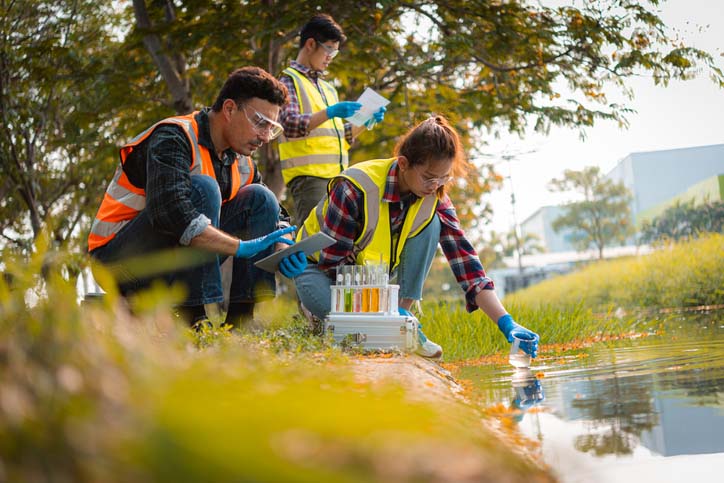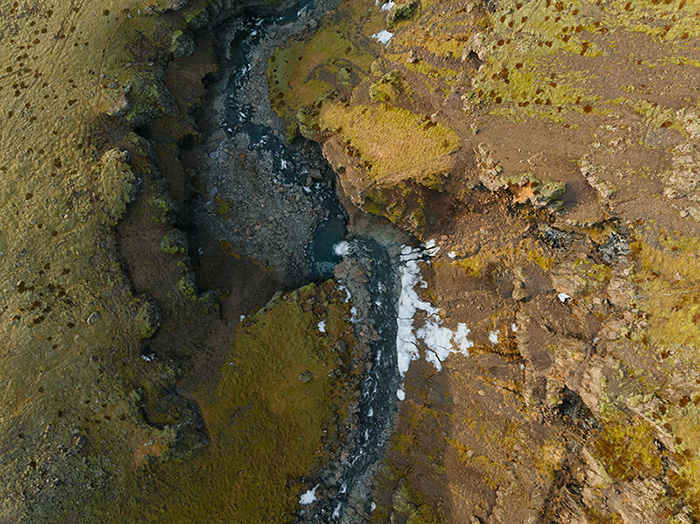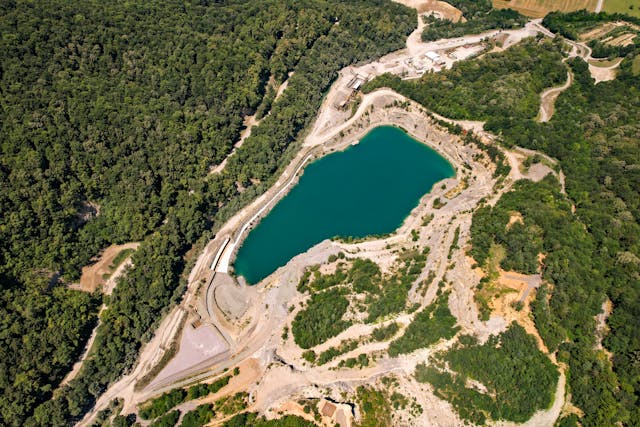LCG has worked across the mine project life cycle for numerous clients across the globe. We specialize in advanced data collection and analysis techniques which include comprehensive materials characterization, water quality evaluation, predictive modeling, and interpretation of large, complex geochemical and geologic datasets (learn more about how machine learning can be used to optimize the mine project life cycle).
Geochemical Characterization & Resource Identification
- Analyze rock, soil, and water for resource identification.
- Identify key constituents in ore bodies using geochemical and isotopic techniques.
- Geochemical modeling to assess economic potential and environmental risks of mineral deposits.
- Integrate geochemical data with geological/geophysical surveys to refine target areas.
- Use machine learning and statistical tools to improve exploration success rates by identifying patterns and anomalies.
- Use geochemical forensics to trace metal/mineral anomalies and guide exploration.
Groundwater & Surface Water Baseline Assessments
- Establish baseline groundwater/surface water conditions pre-development.
- Assess natural constituent concentrations to understand regional hydrogeological systems.
- Use predictive modeling to assess mining influences on water resources.
- Provide data insights for optimizing drilling programs and assessing water management needs.

Geochemical Feasibility Studies & Environmental Assessments
- Conduct geochemical evaluations to assess resource quality and extraction feasibility.
- Use speciation and modeling to predict constituent behavior during extraction.
- Integrate geochemical data into EIAs to assess air, water, and soil influences.
- Use water balance/quality models to inform mine design and water management.
- Assess acid rock drainage (ARD) and metal leaching risks and develop mitigation strategies.
- Use data-driven tools to optimize design scenarios and environmental outcomes.
Permitting Support & Regulatory Compliance
- Prepare geochemical data/models for permitting, ensuring regulatory alignment.
- Develop water quality and management plans to meet discharge/usage regulations.
- Predict water quality changes to demonstrate compliance with standards.
- Support stakeholder engagement with data visualization of environmental risks/benefits.
- Create geochemical monitoring plans for ongoing regulatory compliance.
Geochemical Monitoring & Water Quality Management
- Monitor groundwater, surface water, and waste streams during mining to track constituent behavior.
- Use real-time water quality systems to manage operations and ensure compliance.
- Optimize water reuse/recycling to reduce consumption and improve efficiency.
- Guide operational adjustments based on geochemical assessments (e.g., pH, ARD).
- Use data models to predict water quality trends for proactive management.
- Conduct scenario analysis for adaptive water management under varying conditions.
Waste & Tailings Management
- Analyze tailings/waste rock for constituent mobility and environmental behavior.
- Assess risks in TSFs and waste disposal, focusing on ARD/metal leaching.
- Monitor and manage tailings dam integrity and interactions with water sources.
- Develop waste management strategies to balance operational needs and environmental impact.
- Use real-time monitoring to detect early environmental risks in tailings and waste.
- Optimize tailings disposal (e.g., dry stacking) to improve stability and reduce water use.
Mine Closure Planning & Reclamation
- Integrate geochemical data into closure planning for long-term stability of waste and water.
- Use modeling to predict post-closure constituent behavior (e.g., ARD, metal leaching).
- Develop stabilization strategies for tailings and waste rock to prevent release.
- Support passive treatment system design for post-closure water quality management.
- Monitor post-closure water and waste stability to meet reclamation goals.
- Use long-term models to evaluate closure success and support adaptive management.



